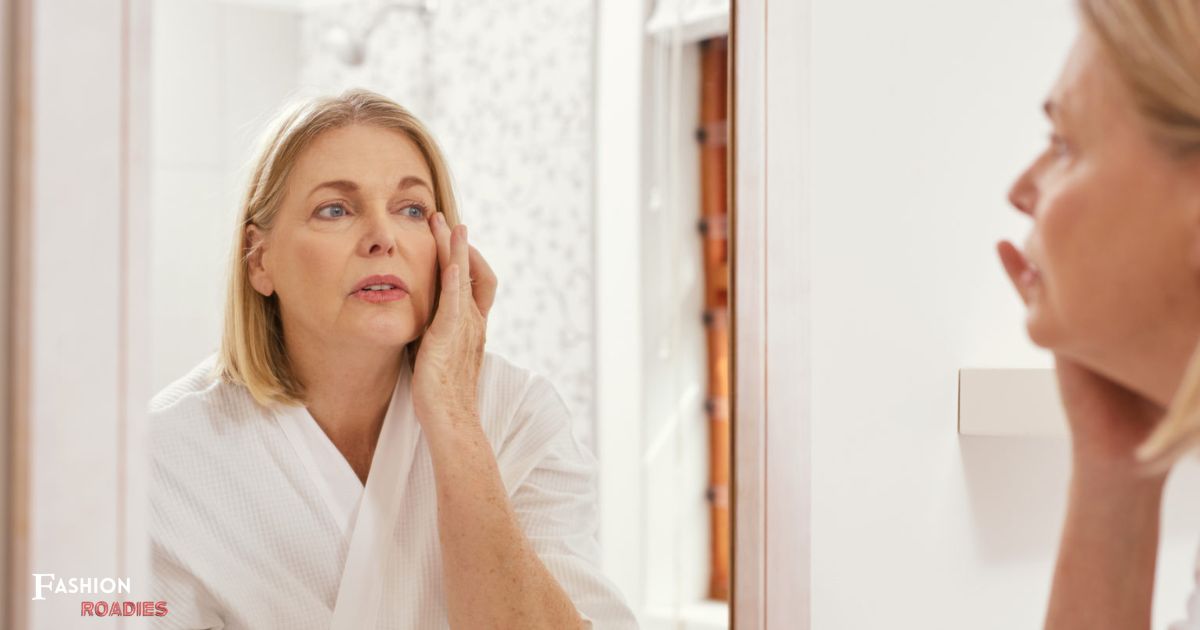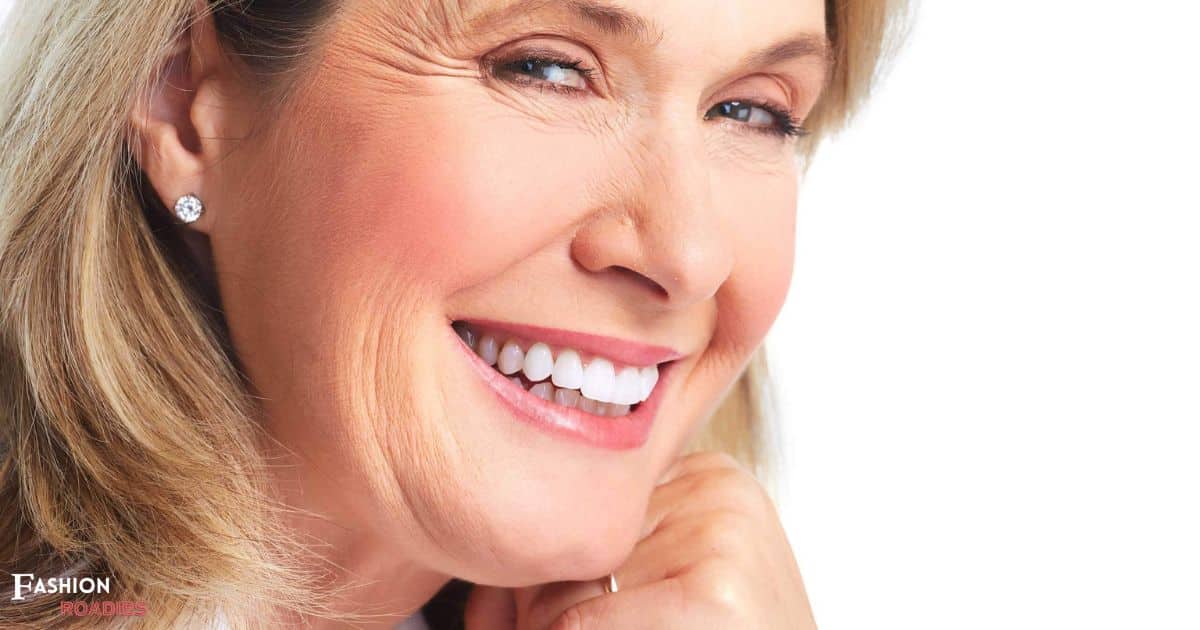As the years gracefully pass by, our skin embarks on a journey of its own, revealing the marks of time and experience. Like a delicate tapestry, aging skin requires special care and attention to maintain its vitality and radiance. In this article, we delve into the intricacies of aging skin, exploring the most effective skincare routines, key ingredients, and non-invasive treatments. Join us as we uncover the secrets to preserving the health and beauty of aging skin, embracing the journey with confidence and grace.
Key Takeaways
- Understanding the aging process of the skin is crucial for developing effective anti-aging skincare interventions.
- Skincare products that stimulate collagen production, enhance hydration, and protect against environmental damage are effective in combating signs of aging.
- Wrinkles and fine lines can be prevented and diminished with natural remedies like aloe vera, coconut oil, green tea, rosehip oil, and cucumber.
- Anti-aging moisturizers with hyaluronic acid, ceramides, and antioxidants can replenish moisture and protect the skin’s natural barrier, improving the overall appearance of the skin.
Understanding the Aging Process of the Skin
A comprehensive understanding of the intricate biological mechanisms underlying the aging process of the skin is essential for developing effective anti-aging skincare interventions. Aging skin is a natural and inevitable process that involves various changes at the cellular and molecular levels. As we age, the production of collagen and elastin, proteins responsible for the skin’s firmness and elasticity, decreases, leading to the formation of wrinkles and sagging. Additionally, there is a decline in the production of natural oils, resulting in dryness and roughness. Understanding these changes is crucial for developing skincare products that can target and address these specific concerns associated with aging skin. By incorporating ingredients that stimulate collagen production, enhance hydration, and protect against environmental damage, skincare products can effectively combat the signs of aging and promote a healthier, more youthful complexion.
Identifying Common Skin Concerns in Aging Skin
As the skin ages, it undergoes various changes that can lead to common concerns. These include the development of wrinkles and fine lines, as well as increased dryness and dehydration. Additionally, aging skin may also experience a loss of elasticity, resulting in sagging and a lack of firmness.
Wrinkles and Fine Lines
During the process of aging, the formation of wrinkles and fine lines becomes increasingly evident, highlighting the need for effective skincare interventions. Many individuals desire to maintain a youthful appearance and seek ways to prevent wrinkles or diminish the appearance of fine lines. While there are various products and treatments available in the market, some people prefer natural remedies for fine lines. These remedies often use ingredients found in nature to nourish and rejuvenate the skin. Below is a table highlighting some popular natural remedies for fine lines:
| Natural Remedies for Fine Lines | Benefits |
|---|---|
| Aloe Vera | Hydrates and soothes the skin |
| Coconut Oil | Moisturizes and improves elasticity |
| Green Tea | Provides antioxidants and reduces inflammation |
| Rosehip Oil | Stimulates collagen production |
| Cucumber | Soothes and refreshes the skin |
Using these natural remedies, individuals can incorporate safe and gentle methods into their skincare routine, promoting healthy and youthful-looking skin.
Dryness and Dehydration
Many individuals experience dryness and dehydration as common skin concerns during the aging process, necessitating the implementation of effective moisturizing and hydrating skincare solutions. Dryness prevention is crucial for maintaining healthy and youthful-looking skin. As we age, our skin’s ability to retain moisture decreases, leading to dryness and a dull complexion. To combat this, it is essential to incorporate anti-aging moisturizers into our skincare routine. These moisturizers are specially formulated with ingredients that not only hydrate the skin but also target other signs of aging, such as fine lines and wrinkles. Look for products that contain hyaluronic acid, ceramides, and antioxidants, as they help replenish moisture and protect the skin’s natural barrier. Regular use of these anti-aging moisturizers can help restore moisture levels and improve the overall appearance of the skin, promoting a more youthful and radiant complexion.
Loss of Elasticity
A significant factor contributing to the visible signs of aging is the loss of elasticity, which can be addressed through the use of targeted skincare products and treatments. As we age, our skin tends to lose its ability to bounce back and firmness decreases. This can result in sagging and wrinkles, making us look older than we feel. To combat this, it is important to focus on promoting collagen production in the skin. Collagen is a protein that helps maintain skin structure and elasticity. There are various skincare products available that are specifically formulated to target skin firmness and boost collagen production. These products often contain ingredients like retinol, peptides, and hyaluronic acid, which have been shown to improve skin elasticity and reduce the appearance of wrinkles. Additionally, certain treatments such as laser therapy and radiofrequency can also help stimulate collagen production and tighten the skin. By incorporating these targeted skincare products and treatments into our routine, we can help restore and maintain the elasticity of our skin, resulting in a more youthful appearance.
Key Ingredients to Look for in Anti-Aging Skincare Products
When considering anti-aging skincare products, it is essential to prioritize ingredients that are rich in antioxidants and known for their ability to enhance collagen production. These key ingredients have numerous benefits for aging skin, including reducing the appearance of wrinkles, improving skin elasticity, and promoting a youthful glow. To get the most out of these ingredients, it is important to use proper application techniques such as gently massaging the product into the skin and allowing it to fully absorb before applying other products. When it comes to choosing the best brands, it is recommended to look for ones that have been backed by scientific research and clinical studies. However, for those seeking cost-effective options or alternative treatments, natural remedies and holistic approaches may also provide beneficial results. In addition, making lifestyle changes and incorporating dietary supplements can further support the anti-aging process.
The Importance of Sun Protection for Aging Skin
In today’s discussion, we will delve into the criticality of sun protection for aging skin, emphasizing the need to incorporate sunscreen and other protective measures into daily skincare routines. As we age, our skin becomes more susceptible to damage from the sun’s harmful UV rays. Sunscreen is a vital tool in combating this damage, as it helps to prevent wrinkles, age spots, and skin cancer. By applying sunscreen with a high SPF regularly, we can shield our skin from the sun’s harmful effects. Additionally, other sun protection methods such as wearing protective clothing, hats, and seeking shade during peak sun hours can further enhance our skin’s defense against UV radiation. By incorporating these sun protection practices into our daily skincare routines, we can maintain the health and youthfulness of our aging skin.
Tips for Creating an Effective Skincare Routine for Aging Skin
Our discussion will focus on the tips and tricks that can assist individuals in creating an effective skincare routine for their aging skin. As we age, our skin undergoes various changes, such as decreased collagen production and increased dryness. However, with the right skincare routine, we can minimize these effects and maintain a youthful appearance. Here are some tips to keep in mind:
- Cleanse gently: Use a mild cleanser that doesn’t strip the skin of its natural oils. Avoid harsh chemicals that can further dry out the skin.
- Hydrate and moisturize: Look for products with ingredients like hyaluronic acid and ceramides that help retain moisture. Moisturize twice a day, focusing on areas prone to dryness.
- Use effective product recommendations: Look for products that contain ingredients like retinol, vitamin C, and peptides, which are known for their anti-aging properties.
- Explore natural remedies: Incorporate natural ingredients like aloe vera, green tea, and rosehip oil into your routine. These can provide antioxidant benefits and help reduce inflammation.
Exploring Non-Invasive Treatments for Aging Skin
How can we effectively explore non-invasive treatments for aging skin, and what are the potential benefits they offer? As we age, our skin undergoes changes that can result in wrinkles, sagging, and a loss of elasticity. Many individuals seek non-surgical facelifts and collagen boosting treatments as a way to combat these signs of aging. Non-invasive treatments, such as laser resurfacing, microdermabrasion, and chemical peels, offer a range of benefits. They can help to stimulate collagen production, improve skin texture, and reduce the appearance of fine lines and wrinkles. These treatments are often preferred by individuals who desire a more natural and subtle approach to rejuvenating their skin. By exploring non-invasive options, we can achieve youthful-looking skin without the need for surgery or invasive procedures.
Lifestyle Factors That Can Affect the Health of Aging Skin
Various lifestyle factors can significantly impact the health of aging skin. One of the most common contributors is sun damage, which leads to the development of wrinkles and other signs of aging. Additionally, diet and hydration play a crucial role in maintaining healthy skin, while high levels of stress can negatively affect its overall condition.
Sun Damage and Wrinkles
Excessive exposure to the sun’s harmful UV rays can significantly contribute to the development of sun damage and wrinkles on aging skin. It is crucial to take steps to prevent sun damage and reduce the appearance of wrinkles. Here are some key strategies to consider:
- Apply sunscreen: Use a broad-spectrum sunscreen with an SPF of 30 or higher every day, even on cloudy days.
- Seek shade: Limit your time in the sun, especially during peak hours when the sun’s rays are the strongest.
- Wear protective clothing: Cover your skin with long-sleeved shirts, pants, and wide-brimmed hats to shield it from the sun.
- Use skincare products with antioxidants: Look for products that contain ingredients like vitamin C and E, which can help protect the skin from free radical damage.
Diet and Hydration Importance
Proper nutrition and adequate hydration are vital factors that can significantly impact the health and appearance of aging skin. As we age, our skin becomes more prone to dryness, wrinkles, and other signs of aging. Consuming a balanced diet and staying hydrated can help maintain healthy skin and slow down the aging process.
A diet rich in antioxidants, such as fruits, vegetables, and whole grains, can help protect the skin from damage caused by free radicals. These harmful molecules can accelerate skin aging and contribute to the development of wrinkles and fine lines. Hydration is also crucial as it helps to keep the skin moisturized and supple.
In addition to a healthy diet, it is important to drink plenty of water to maintain optimal skin hydration. Dehydrated skin can appear dull, dry, and flaky, making wrinkles and fine lines more pronounced.
Stress and Skin Health
Stress, along with poor lifestyle choices, can have a detrimental impact on the health of aging skin. As we age, our skin becomes more vulnerable and requires extra care. The effects of stress on the skin can manifest in various ways, including increased inflammation, accelerated aging, and impaired skin barrier function. To mitigate the negative impact of stress on aging skin, it is essential to prioritize stress management and incorporate relaxation techniques into our daily routines. Here are four effective strategies for managing stress and promoting healthy skin:
- Practice mindfulness meditation to reduce stress levels and promote relaxation.
- Engage in regular exercise to boost circulation and stimulate collagen production.
- Incorporate stress-relieving activities such as yoga or tai chi into your routine.
- Ensure you get enough sleep, as lack of sleep can exacerbate stress and affect skin health.
Frequently Asked Questions
Can Aging Skin Be Reversed Completely With Skincare Products?
While skincare products can help improve the appearance of aging skin, it is unlikely that they can completely reverse the aging process. However, some products with proven efficacy can help reduce the signs of aging and promote healthier-looking skin.
Are There Any Natural Remedies or DIY Treatments That Can Help With Aging Skin?
Natural remedies for aging skin: do they really work or are they just a myth? Incorporating DIY treatments into your anti-aging skincare routine can provide benefits such as improved skin texture and reduced appearance of fine lines and wrinkles.
How Long Does It Take for Anti-Aging Skincare Products to Show Results?
The effectiveness of anti-aging skincare products varies depending on individual factors such as skin type and condition. However, incorporating a consistent anti-aging skincare routine and following tips for maximizing product effectiveness can yield noticeable results within a few weeks.
Can a Healthy Diet Alone Improve the Health and Appearance of Aging Skin?
A healthy diet alone can provide numerous benefits for aging skin, improving its health and appearance. However, incorporating a comprehensive skin care routine with targeted anti-aging products can further enhance the overall results and maintain optimal skin health.
Are There Any Specific Skincare Products That Are Recommended for Different Skin Types in Aging Skin?
Specific skincare products for different skin types in aging skin can offer numerous benefits. One such product is retinol, known for its ability to reduce wrinkles and improve skin texture.
Conclusion
In conclusion, understanding the aging process of the skin and identifying common skin concerns are crucial in selecting the best skincare for aging skin. Key ingredients to look for in anti-aging products include retinol, hyaluronic acid, and antioxidants. Sun protection is essential in preventing further damage. Creating an effective skincare routine and considering non-invasive treatments can also help improve the health of aging skin. Lifestyle factors, such as diet and stress, can significantly impact the overall condition of the skin.










